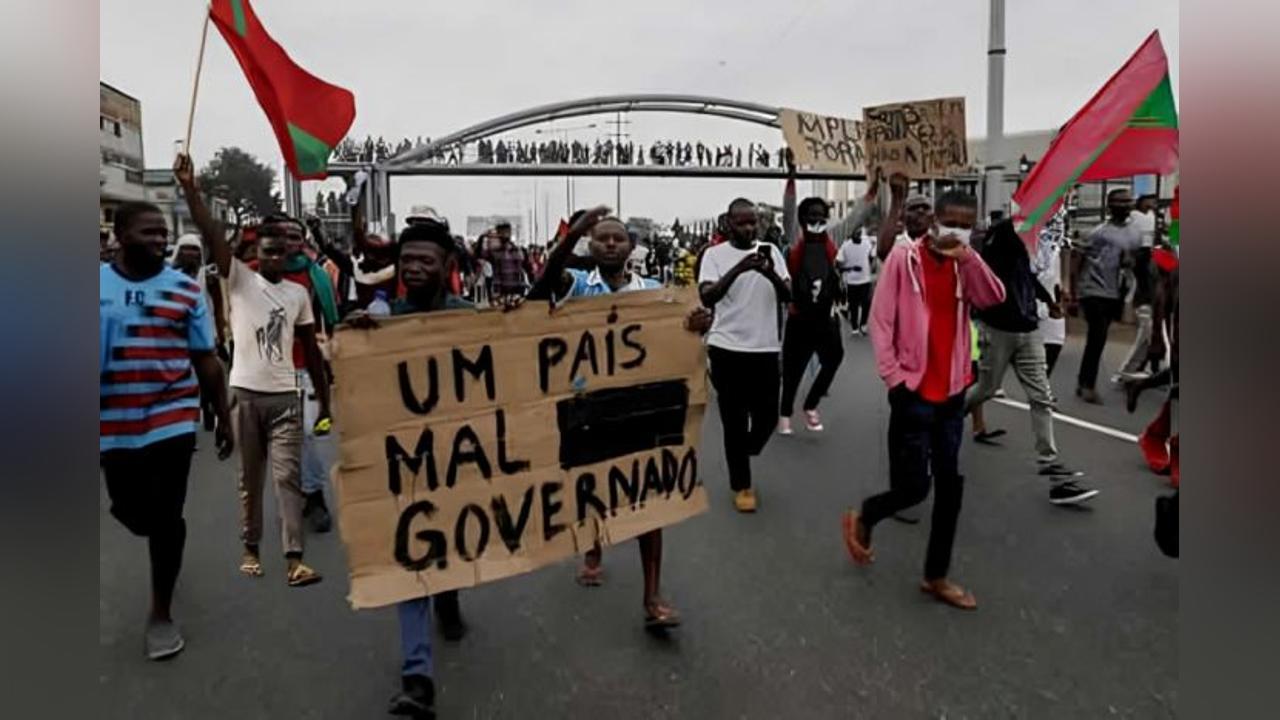Africa-Press – Angola. UNITA will resort to non-stop street protests to demand fairness and transparency in the electoral process. The position was taken after the inauguration of the re-elected president of the CNE in Parliament, which was contested by the largest opposition party.
The inauguration of the re-elected president of the National Electoral Commission (CNE), Manuel Pereira da Silva (Manico), amid strong protests from UNITA, will lead to non-stop demonstrations across the country, announces the leader of the Parliamentary Group of that party, Liberty Chiaka.
The CNE is an independent body that organizes, executes, coordinates and conducts electoral processes.
Re-elected in a curricular competition allegedly riddled with irregularities due to violation of the constitutional principle of equality, in accordance with paragraph 1 of article 23 of the Constitution, UNITA accuses Manuel Pereira da Silva of lacking reputation and suitability to conduct electoral processes with fairness and transparency.
The announcement of street protests comes at a time when the National Assembly is debating the Executive’s proposals to amend the Organic Law on General Elections, proposals to amend the Law on Unofficial Electoral Registration and the proposal to amend the Organic Law on the Organization and Functioning of the CNE.
In this perspective, the Constitutional and Legal Affairs Committee of the National Assembly assessed and approved, in general terms, three legislative proposals presented by the UNITA Parliamentary Group, with a view to reforming the electoral legal framework.
‘Beyond-border’ demonstrations
UNITA, as an interested party, and civil society can hold demonstrations throughout the national territory and in Angolan diplomatic representations abroad, says jurist José Rodrigues.
For this jurist, the exercise of demonstration constitutes a right and an instrument of political struggle in a Democratic State.
“Within the framework of article 47 of the Constitution, UNITA and civil society can launch demonstrations throughout the national territory and at Angolan embassies”, he states.
It argues that the right to demonstrate is the maximum expression of a State of Law, constituting the certainty that it is truly exercised.
Without this exercise, he clarifies, it will not be possible to reverse the current threat to democracy and the right to vote.
José Rodrigues, who defends the need to bring the people as sovereign to the streets, to peacefully protest against the regime, admits that the right to vote is at risk.
In his view, the achievements of the last 30 years are at risk of being silenced by what he calls “legislative maneuvers initiated by the MPLA”.
“The situation demands a response tailored to the situation, as there is a risk of democracy collapsing,” he emphasizes.
He adds that a democratic society cannot exist without the guarantee of free and fair elections, based, above all, on electoral justice and respect for the expression of the people at the polls.
A demonstration is not a riot
This is the conviction of the general director of Mosaiko, Institute for Citizenship, dedicated to promoting Human Rights in Angola.
Frei Júlio Candeeiro considers UNITA’s intention to use the streets as an alternative to institutions that are allegedly not very credible to be legitimate.
Júlio Candeeiro, who considers the MPLA’s proposals to be a true step back from existing electoral legislation, states that, first and foremost, the party in power should ensure that its legislative initiatives ensure the fairness and transparency of electoral processes.
It stresses that, as there are no alternatives within the constitutional framework, UNITA will have no other option but to resort to demonstrations.
“We are faced with the Electoral Law and looking at the proposed amendments presented, which are a real step backwards and, taking into account these intricate positions of the party in power, which wants to pass the law because it has the majority, without even questioning whether this law guarantees credibility to the process, and there not being many alternatives within the constitutional framework, I consider it normal that a party like UNITA calls for demonstrations”, he maintains.
Frei Júlio Candeeiro, who hopes that the ‘black rooster’ party will control the demonstrations to be called, urges the provincial governments and the National Police to view the protests as normal, as they are not an end in themselves.
“The governments and the police must protect the protesters! What I consider abnormal is that people are frightened and associate any demonstration with turbulence, disorder, and chaos,” he advises, assuring that demonstration is a constitutional right and enshrined in the African Charter on Human Rights,” he recalls.
For More News And Analysis About Angola Follow Africa-Press






